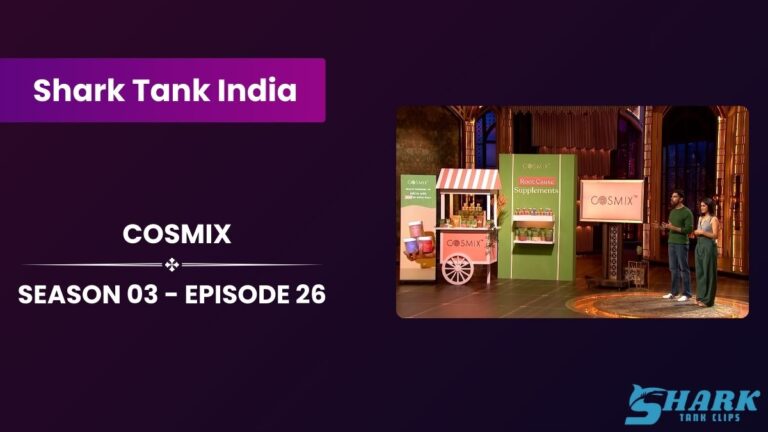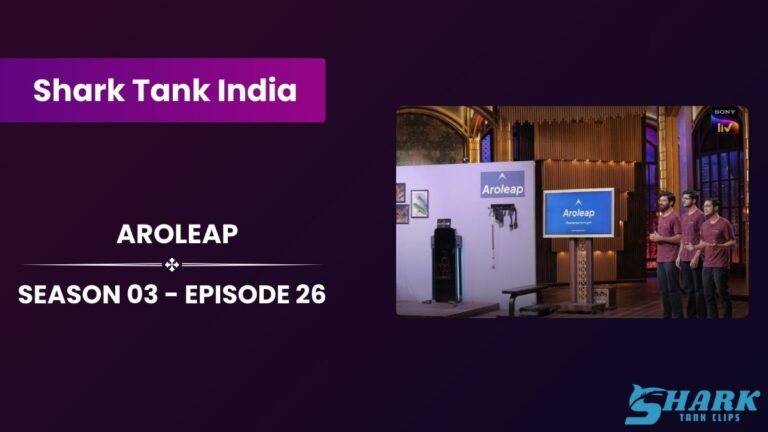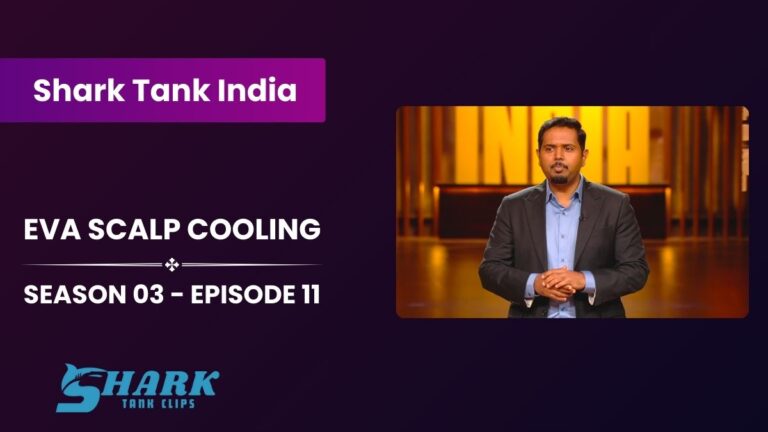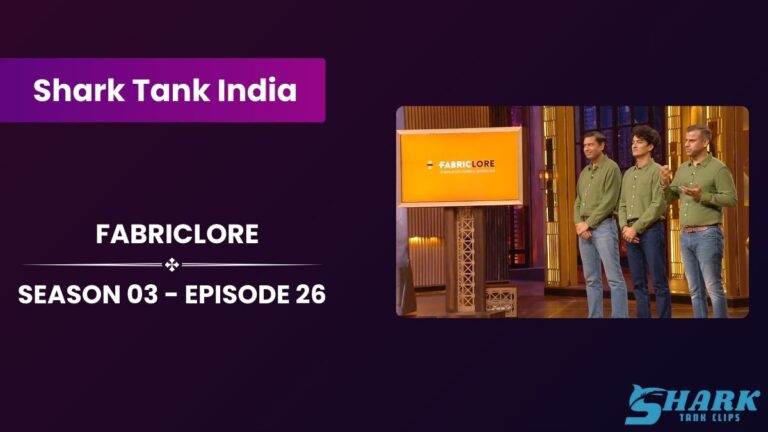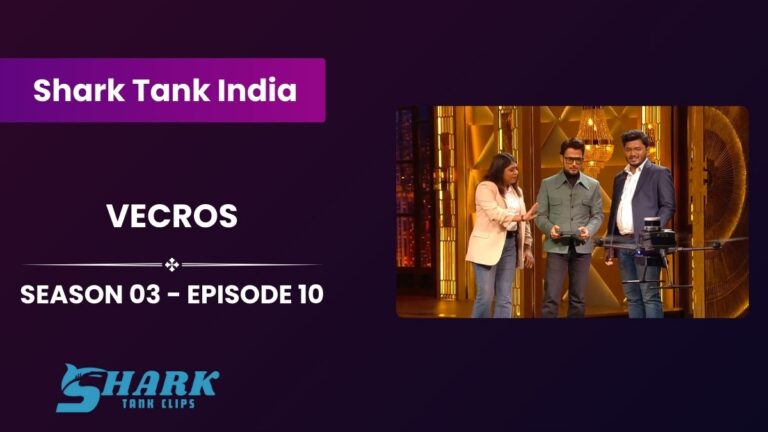Rubbabu Update | Shark Tank India Season 03
Rubbabu founders Rahul Butalia, Meghla Bhardwaj, and Meera Butalia appeared in Shark Tank India S03E24, seeking ₹2 crores for 5% equity at a company valuation of ₹40 crores.
Rubbabu is a toy manufacturing brand that supplies various types of toys that are safe for toddlers, babies, and young children.
Their products are made from biodegradable natural rubber foam that has anti-microbial, hypo-allergenic, and mildew-resistant properties.
Here are more details about Rubbabu’s pitch recap and what happened to this company after the show.

| Comany Name | Company Name |
|---|---|
| Founders | Rahul Butalia, Meghla Bhardwaj, Meera Butalia |
| Founded | 2005 |
| Product | Toddler’s safe toys |
| Ask | ₹2 crores for 5% equity |
| Deal | No deal |
| Sharks | No shark |
Rubbabu Shark Tank India Update
Toy manufacturing company Rubbabu appeared in Shark Tank India for raising ₹2 crore investment in exchange for 5% equity. No sharks invested in this company because they were unsatisfied with the founder’s attitude and vision of the company.
Rubbabu left the show without getting any deal on the Shark Tank. However, the company gained immense popularity among Indian households, and the Rubbabu website saw a strong spike in visitors after the airing of the episode.
As of March 2024, Rubbabu is operational and working to expand its business globally and locally. Our team is following up with the founders, and we’ll come up with more details in the upcoming Rubbabu update.
Also Read:
What is Rubbabu?
Rubbabu is a popular toy brand that manufactures all of its toys from natural rubber foam. The trio of Rahul Butalia, Meghla Bhardwaj, and Meera Butalia started it way back in 2005.
Toys made from natural rubber foam are bio-degradable and are safe to use. Rubbabu claims that their toys are quite beneficial for kids with special needs like ADHD and Autism.
These kinds of toys are labeled as Special Needs Adaptable Products (SNAP). Rubbabu’s toys are all hand-made without any external help from a machine.
The founders of Rubbabu believe in generating employment, which is a rarity in the market. They claim that apart from them, no other company manufactures such hand-made products.
Rubbabu Shark Tank India Pitch Recap
The founders started the discussion with a pitch of about ₹2 crores for 5% equity at a valuation of ₹40 crores. After the end of the pitch, the judges started asking about their business.
Anupam: I really like the aesthetic and build quality of your toys. The touch-and-feel experience is great. I hope these are not harmful in any way to children.
The founder explained that they have a warning sign on all their products that these are not for teething children cause they may try to eat them.
Ritesh: So, do you think that your toys are for young children or slightly grown kids?
Founder: Mostly for 3 to 4-year-old kids.
Anupam then shared his own personal experience of dealing with Chinese toys where he struggles just to open their packaging. Meanwhile, Rubbabi seems a genuine product to him.
Founder: Oh, so while you are talking about China let me tell you that there is no other company in the world who sell their products in China apart from us.
The sharks got really excited and applauded hearing this.
Anupam: So, are you selling your products locally as well?
Funder: Yes, we have recently started making products for local markets as well. We have been in business since 2005 and have mostly sold our products globally.
The discussion then reached towards the pricing of Rubbabu’s products.
Founder: Our keychain will be sold at ₹100, and the puzzle will be sold at around ₹1500.
Anupam: But these kinds of puzzles are already available in the market for about ₹200. Of course, there is a difference in quality but still, people won’t pay this high just for a puzzle.
The other sharks agreed with it. Rubbabu’s products are priced very high for the Indian market.
Ritesh: Can you tell me about your revenues?
Founder: Last year, we sold about ₹4 crores worth of products, out of which 80% were exported globally, and only 20% were sold in India.
The founder then explains that he is looking for working capital as it has been hard to get loans from banks due to his old age.
Anupam: What is your profit from the business?
Founder: We made around ₹55 to ₹60 lakhs of profit from ₹4 crores of revenue last year. It is about 12% to 13%.
The founder then revealed that he also got offers of about ₹42 crores (5 million) for selling his company. But he rejected the offers.
Founder: My vision is to scale this company to about ₹60 to ₹80 crores in 5 years and then sell it to a larger company.
Namita: I actually want to make long-term deals. And selling a company so soon is against my investment philosophy. So, I would like to be out of this deal.
Vineeta then expressed her observation about the founder. She said that the founder looks extremely self-obsessed and won’t listen to any other idea apart from his own.
Vineeta: I cannot find any equation to work with you guys as everything sounds pre-decided. This is not how I work. So, I will be out of this deal.
Even, Ritesh then went out of the deal as he could not see any upside in the founder’s vision. But, he applauded the founder’s grit and dedication towards work even at this age.
The founder gave more clarifications that he doesn’t want a ₹2 crore investment at once. He wants investments in installments so that he can start manufacturing as soon as possible.
Aman: I think that you are here for funding, assuming that we are just like a bank. Working with you won’t be fun with this attitude. I won’t be able to work with you. I am out.
Anupam: Investment mentality is such that if there is a strong personality involved, then it’s hard for an investor to give any input. This is why I won’t be able to work with you. I am also out.
Rubbabu returned without any investment in Shark Tank India Season 3.
Final Words
Shark Tank India has always proved the notion that, most of the time, an investor doesn’t actually invest in a business but rather in the founder. A business may become profitable in the future, but if an investor is not compatible with the founder then he may like to stay out. This is what happened with Rubbabu on Shark Tank India Season 3.

